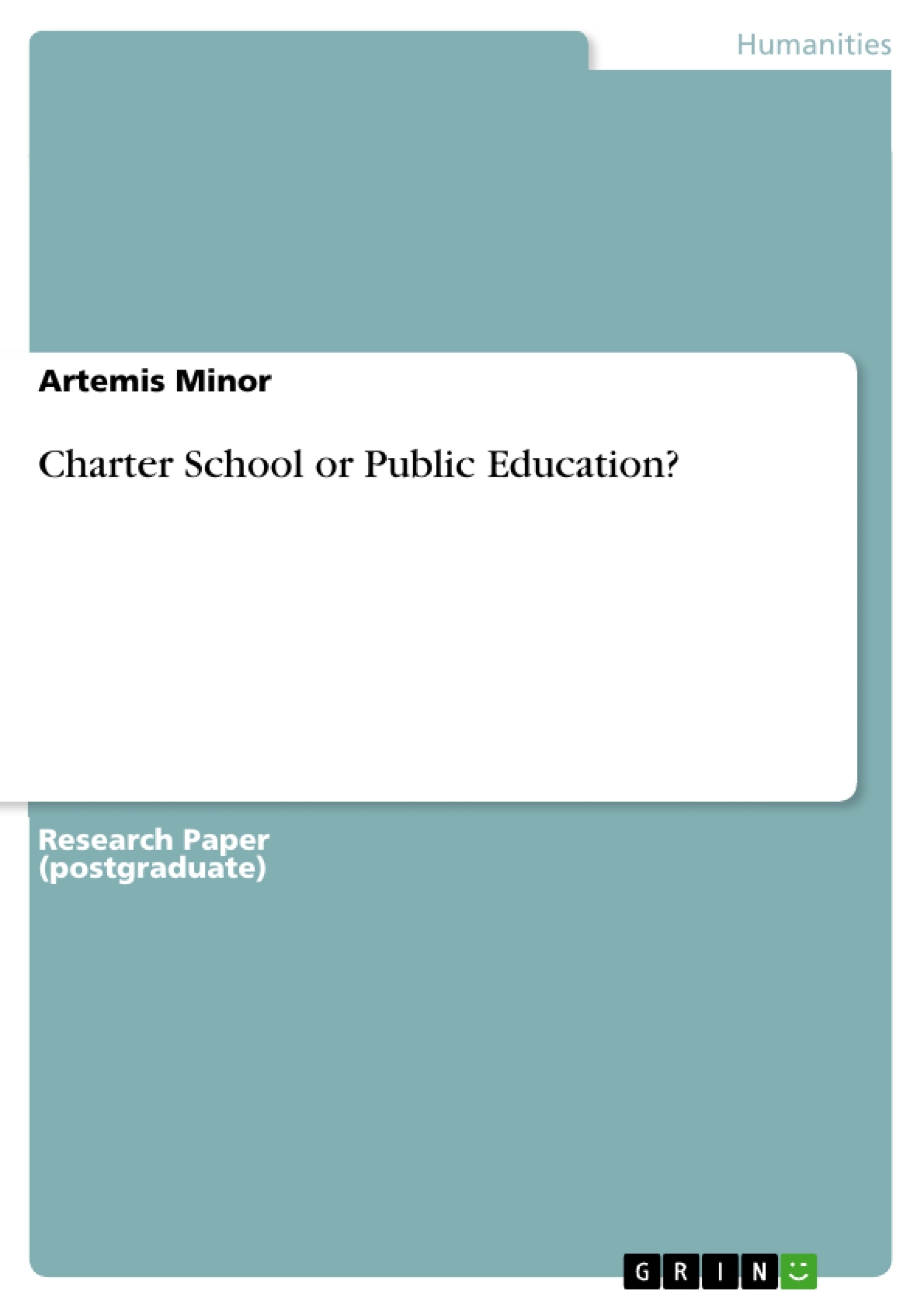Without the foundation of a quality education a person will less likely possess the ability to lead a successful life with a purpose. Therefore, the great debate over what is the best kind of education to give a child is a very important one. A critical component in this education debate is whether or not a parent should consider Charter School as a viable choice for their child’s educational foundation.
Inhaltsverzeichnis (Table of Contents)
- Why do some parents choose Charter Schools for their children?
- History
- Why Charter Schools?
- A Different Perspective
- Success Academy
- Why Parents Choose Charter Schools
- Conclusion
Zielsetzung und Themenschwerpunkte (Objectives and Key Themes)
This article explores the reasons why parents choose Charter Schools for their children. It examines the historical context of Charter Schools, their origins and purpose, and their impact on urban communities. The article also discusses the arguments for and against Charter Schools, including the perspectives of prominent education figures like Diane Ravitch. It delves into the successes and controversies surrounding specific Charter Schools, such as Success Academy, and analyzes the factors that influence parents' decisions, such as rational choice theory and the perceived benefits of Charter Schools compared to traditional public schools.
- The History and Origins of Charter Schools
- The Role of Charter Schools in Urban Communities
- Arguments For and Against Charter Schools
- Successes and Controversies of Charter Schools
- Factors Influencing Parents' Choice of Charter Schools
Zusammenfassung der Kapitel (Chapter Summaries)
- The article begins by introducing the debate surrounding Charter Schools and their role in providing alternative educational opportunities for children. It highlights the historical context of educational inequality and the need for reform in urban communities.
- This section focuses on the origins and purpose of Charter Schools, emphasizing their focus on choice, opportunities, and accountability. It explores the rationale behind their creation and the positive impact they aim to have on disadvantaged students and communities.
- This chapter presents the opposing viewpoints on Charter Schools, particularly the concerns raised by Diane Ravitch. It delves into the arguments against their business-like approach and their potential negative impact on educational reform.
- This section examines the successes and controversies surrounding Success Academy, a prominent Charter School network in New York City. It highlights the school's high test scores, its emphasis on accountability, and its rigorous teaching methods.
- This chapter explores the reasons why parents choose Charter Schools, focusing on the factors that influence their decision-making process. It delves into the role of rational choice theory and the perceived benefits and drawbacks of Charter Schools.
Schlüsselwörter (Keywords)
The key concepts and themes explored in this article include Charter Schools, urban education, educational inequality, educational reform, parental choice, rational choice theory, Success Academy, Diane Ravitch, achievement gap, accountability, and test scores.
Frequently Asked Questions
What are Charter Schools?
Charter Schools are alternative educational institutions that focus on choice, opportunity, and accountability, often serving urban communities.
Why do parents choose Charter Schools over public schools?
Parents often cite the perceived benefits of higher accountability, better test scores, and more rigorous teaching methods as reasons for their choice.
What is the "Success Academy"?
Success Academy is a prominent Charter School network in New York City known for high test scores and controversies regarding its strict methods.
What are the main arguments against Charter Schools?
Critics like Diane Ravitch argue that Charter Schools take a business-like approach that may negatively impact broader educational reform and public funding.
How does rational choice theory apply to education?
The article uses this theory to analyze how parents weigh the benefits and drawbacks of different school types to make an informed decision for their child.
- Quote paper
- Artemis Minor (Author), 2015, Charter School or Public Education?, Munich, GRIN Verlag, https://www.grin.com/document/310445



